Halt your high-frequency digital marketing campaigns right now!
Well, don’t be alarmed. Here’s why you must stop your incessant online ads and posts.
Over 63% of consumers are super annoyed when you bombard them with generic content. They avoid clicking on your emails, blog posts, ads, and social media content. Some opt-out of email and newsletter subscriptions, while some flag your emails and social media content as spam or irrelevant. You pound them to the level where they flee from your product or service.
Whitehat Jr, for example, is one such online learning platform that bombards anyone who takes the demo class with non-stop emails.
Imagine 7 emails in 5 hours! Students and parents become wary, dreading any further communication, leave alone enrolments.
Sounds scary, right? But hey, don’t worry. We’ll help you break free from this madness.
Wondering what could salvage your online marketing efforts and increase conversions?
- Unleash the power of market research
- Deliver personalized social media engagement
- What is market research?
- Benefits of market research
- Types of market research
- 25 free market research tools
- 1. Social Animal
- 2. Surfer SEO
- 3. Pew Research
- 4. Think with Google
- 5. Google Trends
- 6. Google Analytics
- 7. Google Alert
- 8. Quora
- 9. Flipboard
- 10. Slideshare
- 11. Feedly
- 12. Moody’s Analytics
- 13. Tableau Public
- 14. U.S. Census Bureau
- 15. Facebook Audience Insights
- 16. Facebook Analytics
- 17. Twitonomy
- 18. LinkedIn Analytics
- 19. Social Mention
- 20. Dynata
- 21. Market Sight
- 22. Zappi
- 23. Sisence
- 24. NVivo
- 25. Survey Monkey

Unleash the power of market research
Never underestimate the potential of market research. It is a potent customer research tool that helps you perfect your online marketing and achieve the following objectives.
- Attract the target audience
- Deliver personalized services and engagement
- Reach top search engine ranks
- Garner greater social media engagement
- Lead the competition
- Improve products and service offering
- Enhance customer delight
- Improve Return on Investment (ROI)
Deliver personalized social media engagement
Over 50% of the global population is on social media. And this is not data to be trifled with.
Brands must step up to capitalize on this whooping opportunity. They need to actively conduct customer research to understand customer expectations and market trends and wipe out generic content and random marketing campaigns. Using the invaluable market research data, you can deliver personalized engagement to each market segment.
Top-performing businesses rely on data-driven marketing to target the right customer base with the right messaging. Researchers feed data-driven marketing initiatives by providing enhanced insights into the target audience’s pain points and needs.
What is market research?
Market research is the science and art behind understanding target markets, customers, and competitors. It is a powerful weapon against customer loss, reputation risk, poor product/service design, and vapid marketing campaigns. It involves the systematic collection of information using various methodologies and tools to understand market forces, competitor offerings, customer needs, preferences, drivers, and behavior.
In today’s rapidly changing market dynamics, marketers must comprehend the importance of conducting market research exercise regularly. Only then can brands deliver information-driven marketing strategies for authentic and high-quality content creation, content curation, influencer search, and competitor analysis.
Benefits of market research
Insightful market research data is the fine line that separates successful online marketing initiatives from mediocre or failed ones. These are invaluable techniques that help you devise information-driven strategies to effectively promote your product/services, and increase website traffic, SEO rankings, and conversions. Market research tools can enhance content personalization and weed out futile campaigns through the following means.
- Adding more context to the target audience
- Customizing content and campaigns
- Reducing the risk involved in testing new channels
- Leveraging channels where customers engage
- Identifying the best influencers
- Cashing in on the latest trends
- Decoding complex buying cycles
- Conducting a comprehensive competitor and customer research
- Benchmarking against the best digital marketers
Types of market research
Businesses need qualitative, quantitative, primary, and secondary research to gather, analyze, and interpret customer expectations, spending habits, engagement, and, most importantly, customer feedback.
Primary research
Surveys, observations, experiments, polls, focus groups, and ethnographic interviews conducted by the business fall under the primary or first-party category. These methods are the most accurate and valuable ones, as the information is derived from the intended target customers. As it provides an honest, authentic window into actual customer behavior, preferences, and feedback, it strengthens customer-centric content creation and marketing campaigns.
Marketers can share polls, surveys, and interview questionnaires via emails, social media, or in person. Organizations can conduct primary research by themselves or by hiring expert market researchers. Though it is workforce intensive and takes considerable time, the results are high-quality and most specific and relevant to business needs.
Secondary research
Accessing and utilizing existing data from research firms, academic journals, magazines, ebooks, articles, white papers, infographics, and other second and third-party sources comprises the secondary category. This method serves to crunch numbers and information on market scenarios, trends, industry developments, and competition.
By analyzing and benchmarking against competitor activity, you can create a counterpoint of view that helps build conversations around trending topics and drive increased traffic. Though cost-effective, special care needs to be taken to ensure the information is up to date and accurate.
Qualitative research
Gathering and analyzing intangible information is qualitative research. It can be from both primary and secondary sources. The goal is to gain insight into customer expectations, drives, behavior, and how they feel about your product and service. It also helps identify areas of improvement in product design, presentation, and service.
Qualitative research gives you complete leeway to understand why customers trust the competitor product over yours, or vice versa. It digs deep into aspects such as trust, quality, price, helping you assess where you fall short.
Quantitative research
Crunching numbers, empirical evidence, and statistical data comprise quantitative research. It provides an ultimate understanding of digital marketing performance. Alexa rank, keyword ranking, keyword performance, bounce rate, page views, voice share, followers, engagement rate, and subscriber numbers are key metrics used to analyze digital marketing strategies’ success.
Quantitative research tools also help brands track the efficiency and progress of other market research tools used in online campaigns.
Now that you’ve got a fair idea about market research types, let us see how to use the insights to amplify your product reach, brand awareness, and sales.
Scream less to be heard more
Did you know? The louder you scream, the less you will be heard.
Online audiences engage more when you post ads less frequently. Flooding customer’s mailboxes, social media, and other online real estate and touchpoints with generic irrelevant content will only frustrate the customer.
Marketers must focus on using research tools that assist in engaging customers with tailored digital content that resonates and speaks to them on a personal level, at the right time. The digital content that you create and curate should address customer pain points. It must serve as a go-to source to resolve customers’ problems and satisfy their hunger for detailed information on the product and service.
Win hearts, clicks, and conversions
Now we arrive at the moment of truth.
How do you win your audience’s heart and mind? How do you get them to click and convert?
The answer is simple.
Conduct exhaustive market research. Your customers do too.
According to Google’s Zero Moment of Truth, 75% of consumers do their own online research using their smartphones on social media and search engines before clicking the buy button. They compare product features, reviews, influencer opinions, endorsement, and recommendations before zeroing in on a particular product.
So as a brand, should you not be eons ahead of your customer? You need effective market research tools that will help you increase clicks and conversions.
Automate market research
Automating market research is one of the key game-changers in marketing. According to the latest GRIT report, nearly 80% of researchers believe that market research automation will grow rapidly, lower costs, and quicken project delivery.
Market research automation empowers researchers to focus on work that requires higher intelligence levels while adopting market research tools and technologies that minimize human intervention. It could be an end-to-end automation engagement or comprise of standalone tools that can assist in aggregating, sampling, cleansing, surveying, interviewing, analyzing, visualization, etc.
New to this game of tools? Have no worries!
Check out our review of the 25 best of the best market res\earch tools.
![]() 25 free market research tools
25 free market research tools
A market researcher is only as good as his tools. Gathering, managing, and analyzing humungous data volume is a daunting task. Even if you have the most sophisticated in-house research team, it is still a complex job.
Choosing the right market research tools and platforms helps you optimize cost, effort, and time involved in the process. With advanced yet simple market research tools at your disposal, you can do an amazing job and derive awesome insights for your marketing initiatives.
New to tools research?
Here’s our review of 25 best market research tools that can help hasten and ease your market research for free.
1. Social Animal
Looking for a secret weapon to conquer engagement, clicks, and conversions? Then try Social Animal.
It is one of the best market research tools for data-driven content and social media marketing. By delivering insightful qualitative and quantitative research, Social Animal fuels content creation, curation, and amplification. Through primary and secondary research techniques, this tool helps brands promote products online, boost SEO, find the best social media influencers, understand audience expectations, and track competitor activities.
Here’s a quickie into how Social Animal can help your market research.
- Digs deep into keyword research using sophisticated data analysis techniques
- Tracks, measures, and analyzes any keyword’s performance
- Helps you optimize keyword usage and article performance
- Delivers rich headline analysis to boost Click-through rate (CTR), web traffic, engagement, and search ranking
- Shreds down headline attributes for keywords, sentiment, clarity, and emotional value
- Compares and analyzes articles, keywords, headlines, and engagement metrics
- Lets you perform competitor research by tracking their brand mentions and also helps you analyze how a competitor is performing in the world of content and social media.
Other features of Social Animal include,
- Influencer Discovery
- Facebook Insights
- Trending
Social Animal uses Artificial Intelligence (AI), machine learning(ML), and Natural Language Processing(NLP) to assist in market research initiatives with remarkable accuracy.
Market research can be tricky.
Simplify it with Social Animal.
Sign up for free.
2. Surfer SEO
Improving SEO ranking serves as a significant route to achieve conversion and sales. Surfer SEO is an effective tool that aggregates, analyses, and breaks down Search Engine Results Pages (SERP) and Keywords research. It analyzes website visitor information and provides a strategy to convert them to paying customers.
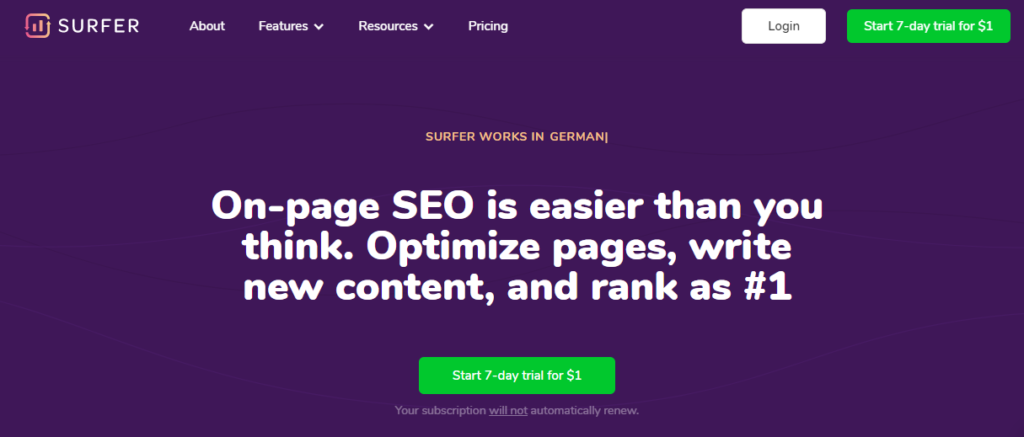
3. Pew Research
A perfect secondary research source, Pew Research Center, is an American thinktank that houses abundant information on social trends, purchase drivers, technology adoption, culture, and other current events. Pew research center conducts and presents insights from their opinion polls, demographic research, content analysis, and empirical research in consumable illustrative formats. Using information from Pew research, brands can tailor their marketing campaigns and target accurately.
Living Facts
Bringing facts and data to life, Living facts is a subsidiary of Pew Center. For any information, you’d like to know about the American dream, communities, health, finances, and work trends, Living Facts is your go-to resource. Businesses can utilize this marketresearch to segment the market and analyze consumer drivers.
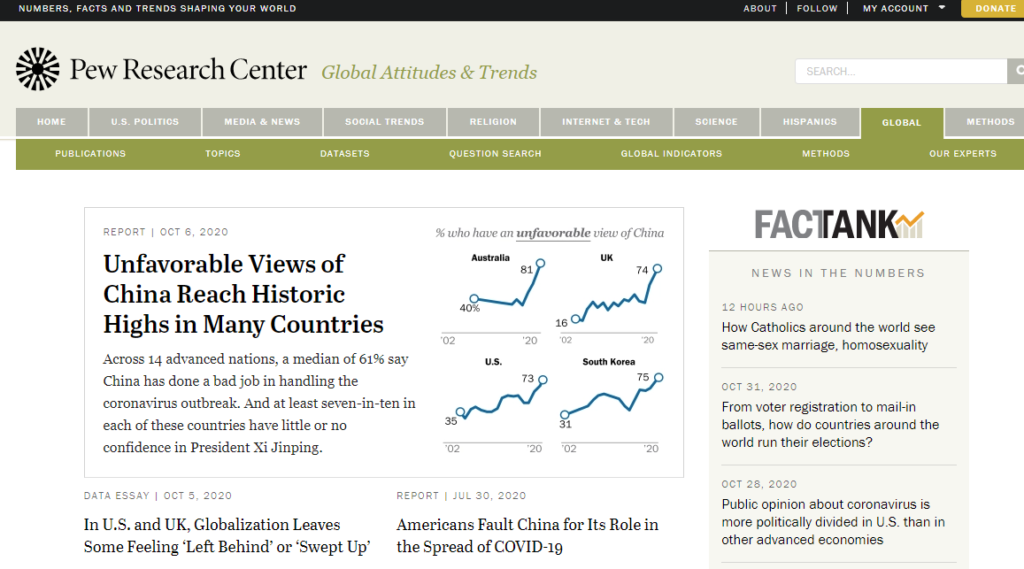
4. Think with Google
If you want exceptional spontaneous research information on the consumer journey, trends, and marketing strategies, then make Think with Google, your best buddy.
5. Google Trends
A significant Think with Google tool, Google trends is very popular among content marketing professionals. It spills the tea on hot and happening global events, a boon for marketers looking for a context to engage.
6. Google Analytics
The most widely used web analytics service, Google Analytics, measures, tracks, and reports web and mobile traffic information. It helps businesses understand the current traffic and devise strategies to boost organic traffic and reduce page bounces.

7. Google Alert
Another research tool from tech giant Google is Google Alerts. This Change Detection and Notification (CDN) service pulls out relevant information based on the keywords you feed, from online newspapers, blogs, and research articles. This tool helps businesses personalize email marketing and content curation.
8. Quora
Want to gain customer intelligence for your research? Then Quora is the right information gathering tool for you in the form of a forum. It serves as a hub where researchers can check in to access real time information right from the horse’s mouth. Research professionals can ask open-ended questions to which customers respond honestly.
9. Flipboard
Helping flip-up content is no time, Flipboard is the holy grail for bloggers and content marketers. It assists marketers in collecting information on competitor content initiatives and industry trends. Based on the information, brands can modify their strategy and benchmark again top-performing competitors.
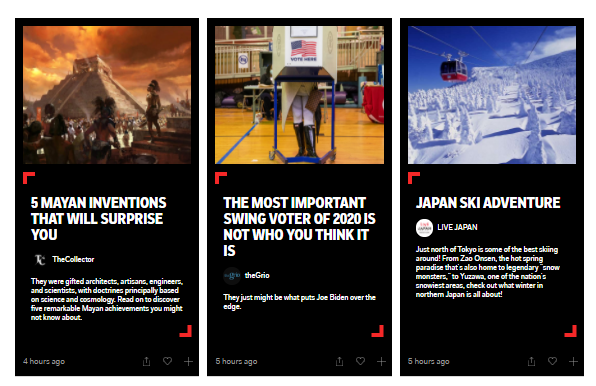
10. Slideshare
Owned by LinkedIn, Slideshare is another effective market research tool. Global stalwarts from the White House, NASA, World Economic Forum, and several Fortune 500 companies share webinars, presentations, and documents on relevant topics.
11. Feedly
Want to aggregate all your online research feeds in one place? Then Feedly is the right tool for you.
12. Moody’s Analytics
Specialists in providing quantitative analysis of financial intelligence, Moody Analytics offers market research material for economic risk, performance, and financial modeling.
13. Tableau Public
An interactive data visualization company, Tableau Public, is one of the best tools for market research. It helps extract, store, and retrieve data from an in-memory data engine.
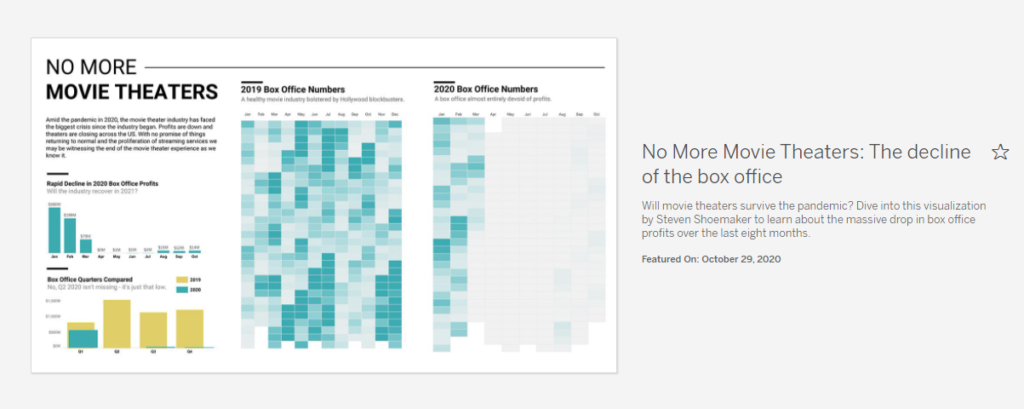
14. U.S. Census Bureau
A great tool to understand economic indicators and statistics on income, employment, and finances, the US Census Bureau is a hero is conducting market research.
15. Facebook Audience Insights
With over 2.7 billion monthly active users, Facebook is the largest social media network that you cannot afford to overlook. Facebook Audience Insights is among the best market research tools that help you understand your audience and target ads precisely. It breaks down audience demographics right from name email, and age group to online activities and behavior.
16. Facebook Analytics
This is the most important among research tools for Facebook. It provides exhaustive information on how the audience engages with your content and how you can increase your reach and effectiveness.
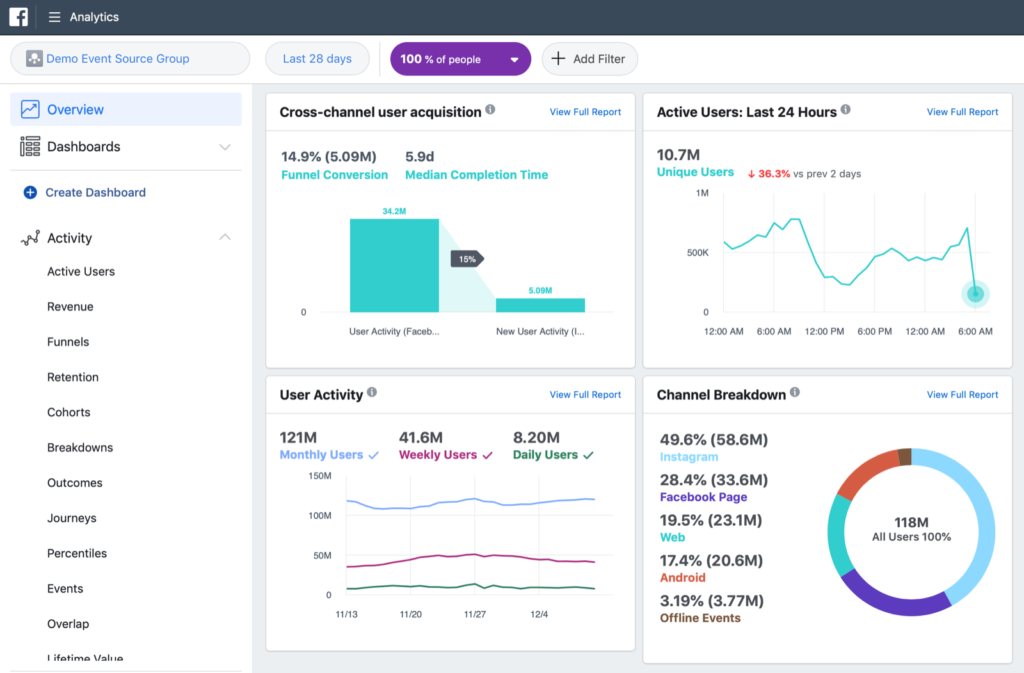
17. Twitonomy
With over 330 million monthly Twitter users, Twitonomy is a market research tool that brands need to leverage on. It provides a detailed, visual interpretation of the engagement activity, pattern, and behavior of customers.
18. LinkedIn Analytics
With over 310 million monthly users, LinkedIn is a gold mine for B2B marketers. LinkedIn Analytics provides real time information on campaign performance and demographic insights.
19. Social Mention
A social media analysis platform, Social Mention, is one of the best market research tools to measure, analyze, and report brand sentiment, reputation, and engagement.
20. Dynata
One of the world’s largest collections of permissioned primary research data, Dynata is every market researcher’s dream come true. This tool provides technology-enabled data solutions for researchers.
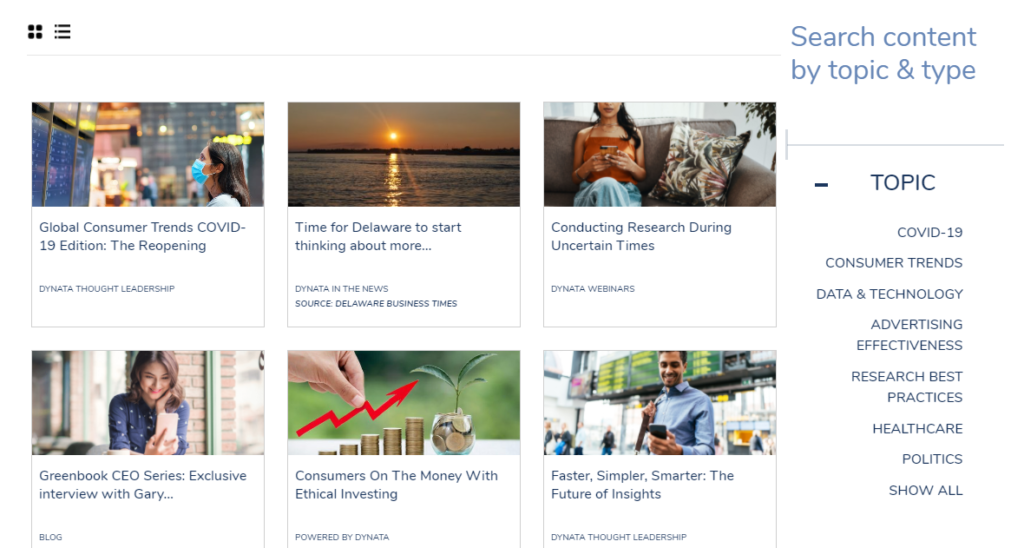
21. Market Sight
Got raw survey data that needs to be analyzed? Market Sight is the right tool for you. They are experts in data management, visualization, and analysis.
22. Zappi
Looking to clean, model, stat test, and visualize your data findings? Look no further than Zappi to predict, measure, monitor, and report digital marketing campaign performance.
23. Sisence
Looking to simplify complex information and transform them into actionable insights? Then Sisense in the best tool for your intelligence team.
24. NVivo
Unlock greater insights from qualitative and mixed methods of data. NVivo is a great platform to organize, store, and analyze your data.
25. Survey Monkey
If you are looking for the best survey tools for your primary research, then try survey monkey. You will not be disappointed.
Final Word
It doesn’t matter if you are a startup or an experienced company, or in the B2B or B2C segment. Now that you have 25 awesome market research tools in your kitty. It’s now time to hit the sweet spot with personalized digital marketing.